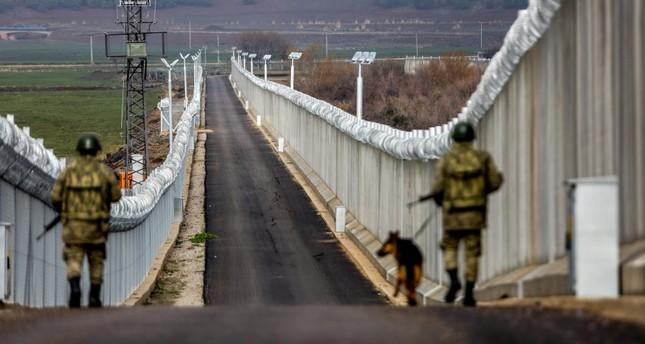Regional countries near Afghanistan are busy bolstering their border security and sending troops to halt an expected explosion of Afghan refugees across their territories seeking to escape new Taliban rule.
Turkey, for example, is rapidly expanding its three-meter-high wall it began constructing in 2017 along its over 330-mile long border with Iran, including adding razor wires, ditches, and thermal cameras along with additional troop presence. This after President Recep Tayyip Erdogan assessed last month as US troops were on their way out of Kabul that Turkey is “facing an increasingly intensifying Afghan migration wave coming via Iran.”
Nikkei reports that by all indicators, regional governments are doing everything possible to keep the Afghan waves out: “Governments from Islamabad to Ankara and Tehran have bolstered border restrictions in anticipation of hundreds of thousands of people fleeing the new regime in Kabul,” the report says.
Read Also: Taliban Unveils New Government, Includes FBI ‘Most Wanted’ Terrorist As Interior…
Historically, fleeing Afghans’ first stop en route to the West has been neighboring Iran, which shares a 570+ mile border with Afghanistan; however, the typically porous border was closed to all Afghans starting Aug.18 as it was clear the security situation inside the war-torn country was unraveling amid the US exit. Further, some Iranian newspapers have reported that Iranian authorities are actively sending Afghans back to their country.
And further, “Pakistan’s army claims to have sealed all irregular crossings from Afghanistan, though domestic media have reported increased human trafficking across the border,” Nikkei writes. “Reluctance or refusal to allow in large numbers of refugees is widespread. In some cases — Turkey again a prime example — allowing such an inflow can create a serious domestic political backlash.”
Turkey is expected to feel the shock first of the beginning refugee wave coming out of Afghanistan, given it’s already long been for years a jumping-off point for Afghans making the arduous trip to Europe. The past decade alone has seen some 600,000 Afghans settle in Turkey – all the while a mass wave of Syrian refugees exited there as well, many of which are still along Turkey’s southern border (over 3 million).
Nikkei also documents some offers from other regional countries to accept a meager number of refugees, unlikely to blunt the problem given the millions that are looking to get out:
Some countries in the region with interests in Afghanistan have offered limited, and short-term, help. The United Arab Emirates has agreed to temporarily host 5,000 evacuated nationals who will go to third countries, following a request from the U.S. The UAE, along with Qatar and Saudi Arabia, has called for peace and political stability in Afghanistan.
Another country that’s been involved in rebuilding Afghanistan over the past two decades in India, which hosts more than 15,000 Afghan refugees from long ago. As of March 2021, a total of 41,315 refugees and asylum-seekers were registered with the UNHCR India, with Afghans making up the second-largest subgroup, at 37%, behind those from Myanmar, at 54%.
All of this serves to highlight that the current climate of proclamations of international sympathy and support for the plight of Afghans is not resulting in any level of changed policies at borders on the ground, but is just stopping at mere rhetoric.

